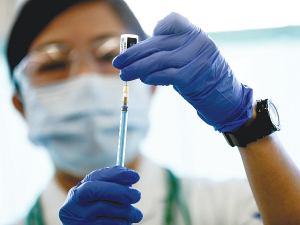M.I.A.
OPINION: The previous government spent too much during the Covid-19 pandemic, despite warnings from officials, according to a briefing released by the Treasury.
 A new study from the University of Otago shows a visible urban/rural divide in Covid-19 vaccination rates.
A new study from the University of Otago shows a visible urban/rural divide in Covid-19 vaccination rates.
According to a new study from the University of Otago, there was a visible rural/urban divide in Covid-19 vaccination rates.
The study, Rural-urban variation in COVID-19 vaccination uptake in Aotearoa New Zealand: Examining the national roll-out, sought to analyse vaccination uptake in rural versus urban settings during the peak period of New Zealand’s national vaccination roll-out in 2021.
The research found varying levels of vaccine uptake among different population groups. The study, published in Epidemiology and Infection, used a national dataset of 4.3 million health service users.
According to the study, at the national level, overall vaccination uptake in rural areas lagged most urban areas, with rural areas lagging behind their urban counterparts by 5-11% by December 2021.
However, the research found this gap is not as clear when also looking at vaccination rates in terms of ethnicity, age, and/or region.
While vaccination uptake among older people in rural areas largely reflected urban uptake, vaccination rates among younger people in rural areas tended to be lower than those of younger people in urban areas.
Talis Liepins, the lead author of the study and a PhD candidate in the University of Otago’s Department of General Practice and Rural Health, says the findings suggest opportunities for improvements in vaccination delivery models for rural and urban communities and further highlights the urban-rural divide in relation to equitable healthcare.
“It is important we advance general awareness around equity of access for rural populations and how health interactions for rural communities differ from urban communities,” says Liepins.
The researchers also found “considerable variance” in uptake between rural older and rural younger people; with the rural urban differences much more apparent in those aged less than 45 years.
Co-author, Professor Garry Nixon, head of rural section in the department of general practice and rural health, says that these differences, which were visible across population groups, suggest possible different barriers to access.
Funded by the Ministry of Health COVID-19 and National Immunisation Programme, the study is the first of three exploring the COVID- 19 vaccine rollout in rural Aotearoa New Zealand.
Legal controls on the movement of fruits and vegetables are now in place in Auckland’s Mt Roskill suburb, says Biosecurity New Zealand Commissioner North Mike Inglis.
Arable growers worried that some weeds in their crops may have developed herbicide resistance can now get the suspected plants tested for free.
Fruit growers and exporters are worried following the discovery of a male Queensland fruit fly in Auckland this week.
Dairy prices have jumped in the overnight Global Dairy Trade (GDT) auction, breaking a five-month negative streak.
Alliance Group chief executive Willie Wiese is leaving the company after three years in the role.
A booklet produced in 2025 by the Rotoiti 15 trust, Department of Conservation and Scion – now part of the Bioeconomy Science Institute – aims to help people identify insect pests and diseases.

OPINION: The release of the Natural Environment Bill and Planning Bill to replace the Resource Management Act is a red-letter day…
OPINION: Federated Farmers has launched a new campaign, swapping ‘The Twelve Days of Christmas’ for ‘The Twelve Pests of Christmas’ to…